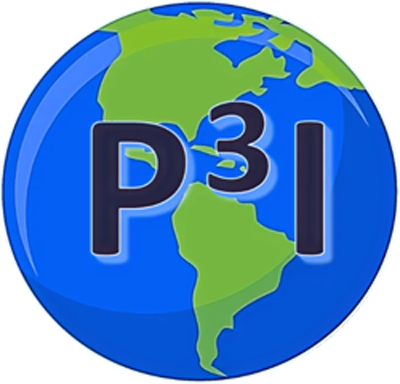Cooking the Books, Cooking the Planet: David MacLean Is on a Mission to End Greenwashing Through His P3I Platform

This Earth Day marks the official hard launch of the Planet People Profit Impact (P3I) platform by McMac CX, a groundbreaking tool designed to disrupt traditional building and community development paradigms. Founded by David MacLean, the P3Iplatform goes beyond mere financial metrics to quantify and monetize the broader impacts of sustainable and resilient building practices.
The P3Iplatform, which debuted in a soft launch on Earth Day 2024, provides a crucial tool for stakeholders across the built environment ecosystem, including investors, architects, engineers, community planners, businesses, actionists, and activists, to assess the true costs and benefits. Through the platform, users gain access to the monetary value of both the positive and negative impacts their decisions have on the environment, social well-being, and financial performance.
David MacLean, a seasoned expert with three decades of experience in sustainability consulting and building science, conceived the P3Iplatform as a response to the pervasive 'lowest-first-cost minimum code' mentality prevalent in the build environment ecosystem. This paradigm, which focuses on adhering to minimum standards and cutting costs, often overlooks the long-term human and environmental impacts. The P3I platform aims to change that by shining a light on the often-hidden burdens—such as health issues, lost productivity, and environmental damage—that result from such shortsightedness.
"Most stakeholders are unaware of the full impact of their decisions and the potential burdens created for building and community inhabitants," MacLean explains. "When you myopically focus on financial first costs and minimal mandatory code requirements, you miss out on the opportunity to create greater natural, human, and financial asset values for investors, owners, and inhabitants." The P3I platform empowers decision-makers by making those costs and benefits transparent, revealing who benefits and who is burdened.
Traditionally, the business case for sustainability has not been well communicated. While green certifications like the Leadership in Energy and Environmental Design (LEED) have existed for years, they have largely been marketing tools for high-end developments rather than universal standards.
MacLean has seen this challenge firsthand. His journey from military service to environmental engineering to leading Texas' U.S. Green Building Council Best Practices Committee informed his belief that sustainability must be framed as an economic advantage rather than an ethical obligation.
The P3I platform's unique approach is in its ability to provide monetary values that are easily internalized by all stakeholders, not just for financial outcomes but also for environmental and social consequences. By offering a way to quantify and monetize the expectation-reality gap—the difference between what stakeholders hope to achieve and what they actually get when they settle for minimum standards—P3I platform users are armed with the best decision-ready data to maximize impact.
The P3I platform was designed as a central hub where diverse and sometimes competing value systems within the build environment ecosystem—from investors to municipal planners and building owners to inhabitants—can realize the advantage of optimized health, productivity, and well-being of the inhabitants of the places people live, learn, work, and play in.
One of the most provocative insights behind P3I is its analogy of 'cooking the books.' MacLean argues that traditional fiduciary models only account for direct costs such as construction expenses, maintenance fees, and operating costs while ignoring the second set of books—the environmental and social costs that inevitably accrue.
For instance, poorly ventilated office buildings create higher employee absenteeism, reduced productivity, and increased healthcare costs—all burdens on a business's prosperity. Energy-inefficient schools result in higher operational expenses and poorer learning environments for children, and commercial developments built to minimum-code standards can create long-term liabilities, reduce property value, and increase insurance risks.
"While these impacts may not appear on an investors' or building owners' balance sheet, they still cost society billions," states MacLean. "The P3I platform sheds light on these 'hidden books,' and demands that they be viewed with equal weighting as traditional financial metrics. The ultimate goal of the P3I platform is to give all built environment ecosystem stakeholders equal access to the environmental, social, and economic monetary value of the decisions made by us and made on our behalf. But also equally important is illuminating who specifically in the built environment ecosystem benefits or is burdened by those choices."
The founder adds: "The P3I platform is not a design tool. It's an awareness opportunity portal, a place for connection, collaboration, and ultimately a pathway to action. I believe that change happens at the speed of trust. The P3I platform facilitates all stakeholder voices to address marketplace realities. It's about meeting stakeholders where they're at in their journeys and laying the foundation for long-term behavior and policy change."
© Copyright IBTimes 2024. All rights reserved.





















